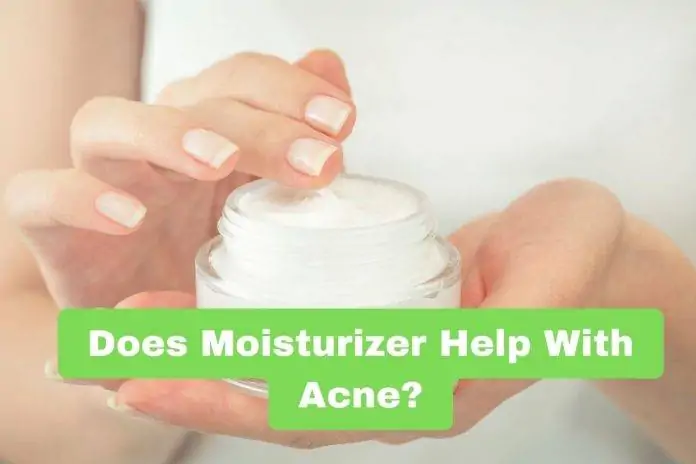There are many different types of does Moisturizer help with Acne available on the market and it can be difficult to decide which one is right for your acne-prone skin. Some moisturizers are designed to help reduce dryness and oiliness, while others are meant to prevent new breakouts. While it may seem like you have to have a complicated skincare regimen in order to prevent acne, there are some easy steps you can take to get the best results.
Avoid comedogenic moisturizers
One of the best ways to prevent acne is to avoid comedogenic moisturizers. These products contain ingredients that clog your pores, which is a major cause of breakouts.
This is especially true for those with oily or combination skin. Oil-free moisturizers help seal in moisture, which is less likely to be absorbed into the pores.
Non-comedogenic skin care products do exist, but they aren’t regulated by the FDA. As a result, companies can’t be sure that their formulas won’t clog up your pores.
To find a non-comedogenic moisturizer, you’ll need to read the label. You can also ask a dermatologist or other trusted skin care source for advice. Some of the best options include Neutrogena’s Oil-Free Acne Moisturizer, CeraVe’s Moisturizing Cream, and Tatcha’s The Water Cream.
The most important thing to remember when looking for a moisturizer is to test a sample first. Many of these products have a variety of ingredients, so you can’t be guaranteed that they won’t clog your pores.
Avoid irritants
If you have acne prone skin, it’s important to avoid irritants when using moisturizer. These can make your skin worse, causing further acne. Instead, use a lightweight moisturizer that is free of irritants.
Some of the most common irritants include: fragrance, retinoids, and sulfates. To help reduce these ingredients, read the label on your moisturizer to find out what it contains.
Another common irritant is alpha hydroxy acids. They can weaken the outer layer of your skin, resulting in irritation.
Some acne moisturizers contain topical medications like benzoyl peroxide. Benzoyl peroxide helps break up dead skin cells and surface bacteria. When used on a regular basis, it can be harsh on your skin, so you should try a light or oil-free moisturizer.
Alcohol is another common skin irritant. Alcohol burns your skin, so you should avoid it. The first ingredient in a moisturizer is often water. Water is a great substitute for alcohol.
Reduce dryness and oiliness
While using moisturizer for acne may not be the first thing on your mind, it can make a world of difference. Dry skin can feel tight and make fine lines more noticeable. It can also lead to premature maturation and eczema.
When choosing a moisturizer, choose one that is lightweight. Thick creams or lotions are not absorbed into the skin and lay on top, causing your face to look oily.
Some of the most popular ingredients are retinol, hyaluronic acid, and aloe. These substances all work to keep the skin moisturized, which helps to reduce acne. However, it is not recommended to use alcohol-based products on your skin.
Another great ingredient is salicylic acid. This helps break down dead skin cells, reducing redness and swelling. Salicylic acid also cleans pores from the inside out.
Another ingredient is humectants, which draw moisture into the skin. Humectants are also known for their anti-inflammatory properties.
Prevent new breakouts
In order to prevent new breakouts, it is important to keep your skin moisturized. This is especially true for people with acne-prone skin. However, it is important to be careful about what types of moisturizers you choose. Certain moisturizers may clog pores and contribute to acne.
If your acne has been aggravated by sun exposure, it is best to use a moisturizer that contains a sunscreen. Also, if you wear makeup on a daily basis, make sure it is noncomedogenic. For example, many makeup products contain salicylic acid, which can help clear up acne. You should also make sure to wash off your makeup at the end of the day.
During the evening, you should use an ultralightweight moisturizer. Choose a product that is formulated without oil. A product with oil can make your skin look greasy and cause clogged pores.
For more effective acne prevention, choose a moisturizer that contains a broad spectrum SPF. Look for a moisturizer that also contains adapalene, a retinoid that can soothe dry, irritated skin.




